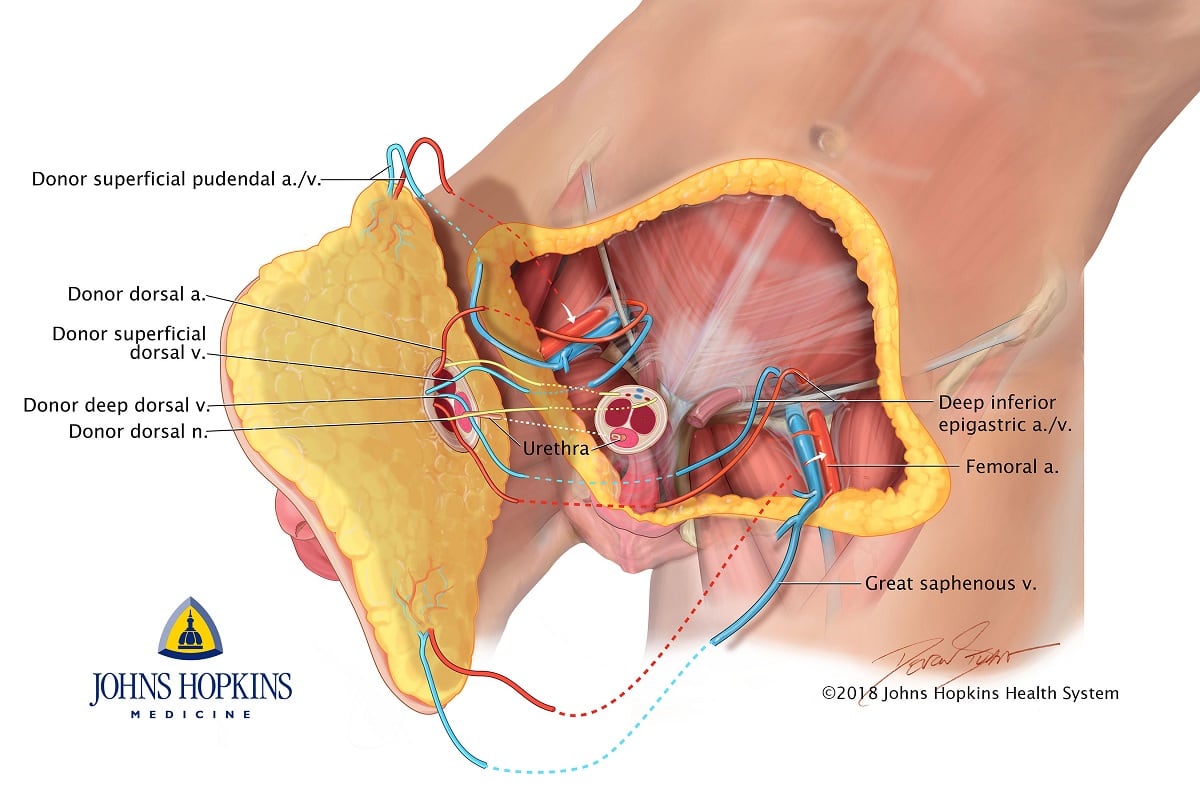A veteran who had his genitals blown off in an IED blast while serving in Afghanistan made history last month by becoming the world’s first recipient of a full penis and scrotum transplant.
Nine plastic surgeons and two urological surgeons from Johns Hopkins Hospital in Baltimore, Maryland, completed the transplant after a meticulous 14-hour procedure, a hospital release said. The parts, which also included a portion of the abdominal wall, came from a deceased donor.
“We are hopeful that this transplant will help restore near-normal urinary and sexual functions for this young man,” Dr. W.P. Andrew Lee, director of plastic and reconstructive surgery at the Johns Hopkins University School of Medicine, said in the release.
The patient, who asked not to be identified, is expected to be released from the hospital this week.
A single section from the donor’s lower abdomen was removed containing skin, muscles, tendons, bone, blood vessels and nerves. The section measured 10 inches by 11 inches and weighed about five pounds, the New York Times reported.

Johns Hopkins funded the operation, which Lee estimated to cost between $300,000 and $400,000, the report said. All of the surgeons performed the procedure for free.
As a result of the IED blast, the patient also lost both legs above the knee, but it was this affliction that ravaged him the most. And while he was relieved, at first, to have survived such extensive trauma, the thought of being permanently disabled in such a way was a rapid catalyst for suicidal ideations.
“There were times you’d be hanging out and guys would be talking about getting hurt, and that’s one of the first things when they get blown up, to check down there, and they would say things like, ‘If I lost mine I’d just kill myself,’” he told the New York Times. “When I would actually think about killing myself, I would think, ‘Am I really just gonna kill myself over a penis?’”
Despite the ground-breaking procedure, which at times involved up to 25 people in the operating room, the soldier will remain unable to father children after the blast destroyed his own reproductive tissue. Testosterone and Cialis, however, will help compensate for the loss and encourage erectile function, the report said.
In a statement through the New England Donor Services, the donor’s family expressed their gratitude for the opportunity to help.
“We are so thankful to say that our loved one would be proud and honored to know he provided such a special gift to you,” the statement read. “As a family, we are very supportive of all the men and women who serve our country and grateful for the job you did for this nation. Please know that this is truly a heartfelt statement. ... We hope you can return to better health very soon, and we continue to wish you a speedy recovery.”
So far, the recovery has gone as hoped. So, what’s next for the soldier? He plans on attending medical school and possibly settling down into a relationship.
“Just that normal stuff,” he said.
No matter what he decides, he’ll now be able to do “that normal stuff” feeling like a new man.
“I feel whole again.”
J.D. Simkins is the executive editor of Military Times and Defense News, and a Marine Corps veteran of the Iraq War.




